Democrats focus on voting rights ahead of 2020 primary
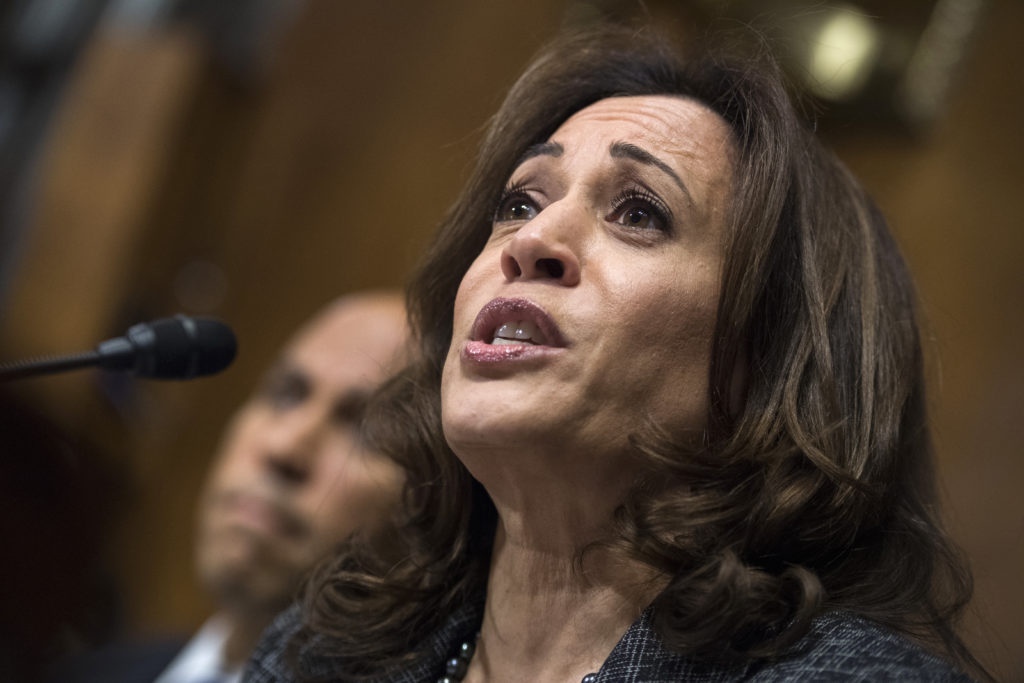
Democrats are trying to turn their most painful losses this year into a rallying cry they hope will electrify the 2020 presidential campaign: Every vote matters. Multiple potential contenders for the Democratic presidential nomination are elevating the issue of voting rights as they prepare to launch campaigns. They’re vowing to oppose Republican-backed efforts to require identification to vote, reinstate protections eliminated by a 2013 Supreme Court ruling and frequently highlight the necessity of counting every vote. The aim is to tap into the anger and frustration among Democrats who argue that Republicans win some elections by making it harder for their constituents, particularly minorities, to vote. That sentiment has long existed among Democrats but intensified after the party lost closely watched races for governor in Georgia and Florida last month. Both contests featured heated racial rhetoric and charges of voter suppression. The party’s suspicion of Republicans has also grown as a congressional race in North Carolina remains mired in allegations of absentee ballot fraud and GOP lawmakers in Wisconsin and Michigan seek to weaken the power of incoming Democratic governors. Democrats ultimately hope to turn the issue of voting rights into an argument that’s just as persuasive to voters in 2020 as health care proved to be in 2018. And there’s already competition among potential presidential contenders to build a reputation as the most aggressive in advocating for the right to vote. “This is not a new issue, and it is quite frankly the dark history of our country, which is specific populations being restricted from meaningful access to the right to vote,” Sen. Kamala Harris of California told The Associated Press. “There’s no question that 2018 highlighted an issue that has maybe seemed to be dormant for some time, but it’s very much alive and it should be the subject of dinner table conversations everywhere and it should be of real concern to everyone because, look, when people lose confidence in our democracy, when Americans lose confidence in our democracy, it will impair our strength. It will cause us to be weaker,” she said. Aides to Harris said that voting rights would be among her top priorities, and that she would likely frame it less as a civil rights issue and as more of a broader Democratic rallying point. She has argued that the entire Democratic agenda is weakened when Republicans restrict ballot access for unions, minorities and other groups. New Jersey Sen. Cory Booker, who is weighing his own presidential bid, has framed the issue of voting rights in the context of a traditional civil rights issue. During an October trip to Des Moines, Iowa, Booker sparked cheering standing ovations as he quoted from Martin Luther King Jr.‘s speech from the 1965 voting rights march on Montgomery, Alabama. “How long will it take? I’m going to tell you, not long now,” Booker proclaimed, turning the moment into a call-and-response. “Because it’s not long until November.” Harris, Booker and Sen. Amy Klobuchar of Minnesota are among the potential presidential candidates who will hold onto seats on the Senate Judiciary Committee heading into 2020, giving them an important post from which to address voting rights. That’s leaving some activists pleased that the issue appears to be moving into the mainstream of Democratic politics. “This is the first time where I feel like there has been a broad conversation because the examples were so egregious,” said Adrianne Shropshire, the executive director of BlackPAC, which works to mobilize black voters. “It was literally in every community that I went to, in every church that I stopped by, in every neighborhood when I was knocking on doors — that was almost one of the first things that people were talking about because everyone felt like their community was under assault.” Still, some caution that the focus on voting rights isn’t a successful strategy to win a crucial election and could instead backfire on Democrats who are trying to appeal to broader swaths of voters. Peter Guzman, a Republican who is the president of the Latin Chamber of Commerce in Nevada, said that while he feels every candidate — Democrat and Republican — should talk about voting rights, he didn’t see it as a singularly important issue to center a campaign on. “I think the conversation should be encouraging everybody to vote, and if anybody feels like that’s being suppressed, they certainly should call the authorities and make it known that they’re not able to vote,” Guzman said in an interview. He added that he could see potential backlash for a candidate who campaigns on it. “I’m not quite sure everybody in the country believes the problem is that significant,” he said. “Here in Nevada, I believe that we have some of the best, safest voting in the United States,” he added. “I think we’re a model for the rest of the nation. I do not believe that there’s voter suppression. Whenever I hear voter fraud, I believe those are buzzwords for other things.” That’s not stopping Democrats for now. At a post-election gathering on Capitol Hill of the National Action Network, the civil rights organization founded by the Rev. Al Sharpton, multiple senators who appear to be moving toward jumping into the 2020 presidential race eagerly discussed the issue. “When it comes to elections, there should be no hesitation: Every vote matters, period,” said Sen. Elizabeth Warren of Massachusetts. “If you can’t get more Americans to vote for you than the other guy or gal, then you lose. It’s that simple. Politicians are supposed to compete over how many voters they can persuade to come vote for them, not how many American citizens they can disqualify, discourage or demoralize.” Klobuchar, who could stake out a more moderate position among Democrats should she choose to seek the White House, told the gathering, “I think No. 1 on the agenda has got to be our economy.” “And then,” she continued, “you can’t have a fair economy for everyone if you don’t have fair voting rights.”
Alabama House attempting to refine crimes that forfeit voting rights
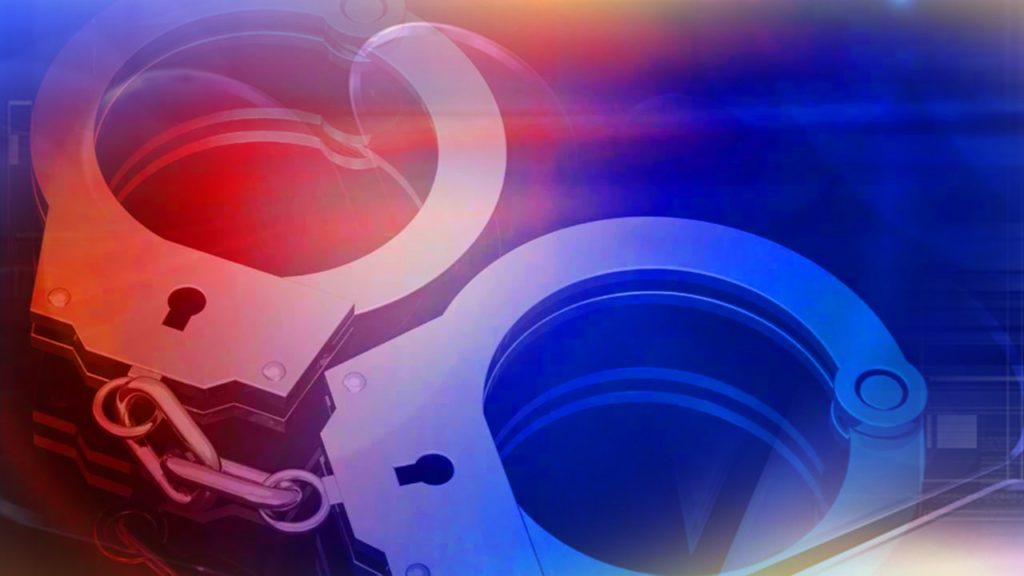
Months after the presidential election, the debate over which Alabamians have the right to vote continues, as lawmakers in Montgomery are attempting to define what criminal convictions should disqualify a resident from voting. Sponsored by Andalusia-Republican state Rep. Mike Jones, HB 282 passed the Alabama House of Representatives by a unanimous vote on Thursday. Under the Alabama Constitution, a person who commits a felony involving moral turpitude loses his or her right to vote. HB 282, better known as the Moral Turpitude Act, establishes a comprehensive list of 42 felonies that involve moral turpitude, which lawmakers consider worthy of voter disqualification. Below are the 42 felony felonies listed in the bill. Most follow specific stipulations, for details check out the full text of the bill here. Murder Manslaughter Assault Kidnapping in the first degree Kidnapping in the second degree Rape Sodomy Sexual torture Sexual abuse Enticing a child to enter a vehicle for immoral purposes Soliciting a child by computer Human trafficking Terrorism Soliciting or providing support for an act of terrorism Hindering prosecution of terrorism Endangering the water supply Possession, manufacture, transport, or distribution of a destructive device or bacteriological or biological weapon Selling, furnishing, giving away, delivering, or distribution of a destructive device, a bacteriological weapon, or biological weapon to a person who is less than 21 years of age Possession, manufacture, transport, or distribution of a detonator, explosive, poison, or hoax device Possession or distribution of a hoax device represented as a destructive device or weapon Attempt to commit an explosives or destructive device or bacteriological or biological weapons crime Conspiracy to commit an explosives or destructive device or bacteriological or biological weapons crime Hindrance or obstruction during detection, disarming, or destruction of a destructive device or weapon Possession or distribution of a destructive device or weapon intended to cause injury or destruction Treason Dissemination or public display of obscene 6 matter containing visual depiction of persons under 17 years of age involved in obscene acts Possession and possession with intent to disseminate obscene matter containing visual depiction of persons under 17 years of age involved in obscene acts Parents or guardians permitting children to engage in production of obscene matter Production of obscene matter containing visual depiction of persons under 17 years of age involved in obscene acts Distribution, possession with intent to distribute, production of obscene material, or offer or agreement to distribute or produce Trafficking in cannabis, cocaine, or other illegal drugs or trafficking in amphetamine and methamphetamine Bigamy Incest Torture or other willful maltreatment of a child under the age of 18 Aggravated child abuse Prohibited acts in the offer, sale, or purchase of securities Burglary Theft of property Theft of lost property Theft of trademarks or trade secrets as defined Robbery Forgery
Terri Sewell: Remembering Bloody Sunday
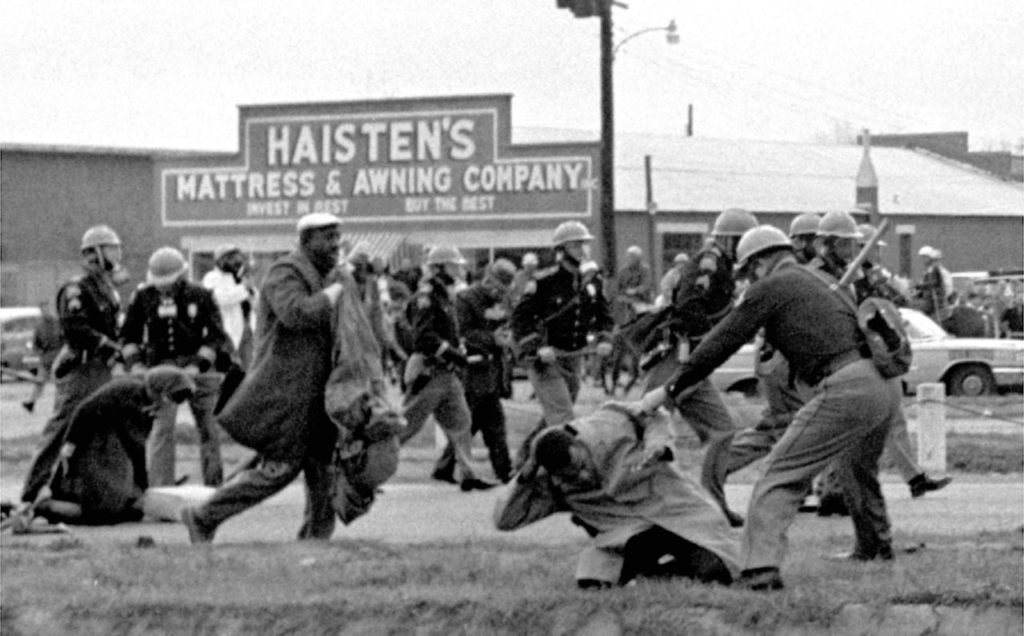
History is never stagnant. The saga of American democracy and the battle for the right to vote has its moments of inspiration, just as it has moments of defeat. The story this year’s chapter will tell is in our hands. Fifty-two years ago today, 600 marchers in Selma, Ala., brought the reality of racism and segregation into living rooms nationwide. That day, hundreds of voting rights supporters were viciously beaten by state troopers as they attempted to cross the Edmund Pettus Bridge. The brutal stories of Bloody Sunday reframed the issue of racism for the American public and ultimately led to passage of the Voting Rights Act of 1965 (VRA), our nation’s most powerful tool for protecting the vote. But the story of America’s fight for fair elections is never finished. After 48 years of bipartisan support from Congress and the White House, the VRA was gutted by the Supreme Court in its 2013 Shelby v. Holder decision, eliminating key protections for minority voters. On the 50th Anniversary of Bloody Sunday in 2015, our nation had an opportunity to undo that damage. That year, I joined President Barack Obama, President George W. Bush and a bipartisan group of more than 100 Members of Congress in Selma to commemorate the voting rights movement. It was an atmosphere of hope and unity in opposition to the hate and racism of our country’s past. Yet we returned to Washington, and Congress did nothing to restore the VRA. Today’s anniversary of Bloody Sunday is another opportunity to recommit to protecting voting rights for all Americans, but it is also a moment to reflect on the fresh urgency of that work. Old battles have become new again. This year’s commemoration of Bloody Sunday comes on the heels of the announcement that the Justice Department would drop challenges to a discriminatory Texas voter ID law, even after that law was struck down twice by courts for undermining minority voting rights. This year’s commemoration was also set against the backdrop of an executive order barring immigrants from Muslim-majority countries from coming into the United States. When Dr. Martin Luther King, Jr. completed his Selma to Montgomery march in 1965, after multiple attempts blocked by the police, he spoke to a crowd of nearly 50,000 supporters. In his speech, he told his audience that “no tide of racism can stop us.” This year I find those words have new resonance. Perhaps Dr. King was right – maybe hate is a tide: one that rolls in and out. This year, we face a rising tide of intolerance that’s had an immeasurable impact on my community. Last week, a bomb threat was called into a Birmingham Jewish community center in my district, the third threat in just one month’s time. I received messages from families who attend the center and were frightened for their safety and hurt by the threats against them. I’ve received messages from Muslim constituents who have family abroad, afraid that a travel ban will block them from seeing their loved ones. I’ve met with constituents worried for undocumented members of their community living in the United States. Looking back at photos from Bloody Sunday, the fear and pain that I see in the eyes of those who marched does not seem so foreign. I recognize the hurt of a people assaulted, threatened, and excluded because of who they are. But I also see courage. When I look at pictures of marchers like Amelia Boynton Robinson, I see a black woman who stood up to hate wherever she encountered it. This year, the 1965 Selma to Montgomery marches do not seem like a thing of the past, but instead a model for our work. We have to act as those in the voting rights movement did, and stand together for the rights of all Americans. I am a direct beneficiary of the movement. I was born the year that the Selma to Montgomery marches took place, and I owe those who fought, bled and died a debt of gratitude that I can never repay. But their story, and the story of America’s voting rights movement, is never finished. When Americans today suffer from some of the same injustices suffered 52 years ago, we cannot ignore the work left to be done. If the brutal stories of Bloody Sunday teach us anything this year, it’s that we must not only remember, but also dedicate ourselves to action. Together, we have a tide to turn back. ••• This article first appeared on TheHill.com. ••• Rep. Terri A. Sewell (D-Ala.) is serving her fourth term representing Alabama’s 7th District. She sits on the House Permanent Select Committee on Intelligence and was recently appointed to the House Ways and Means Committee.
Possible Election Day problems worry civil rights advocates
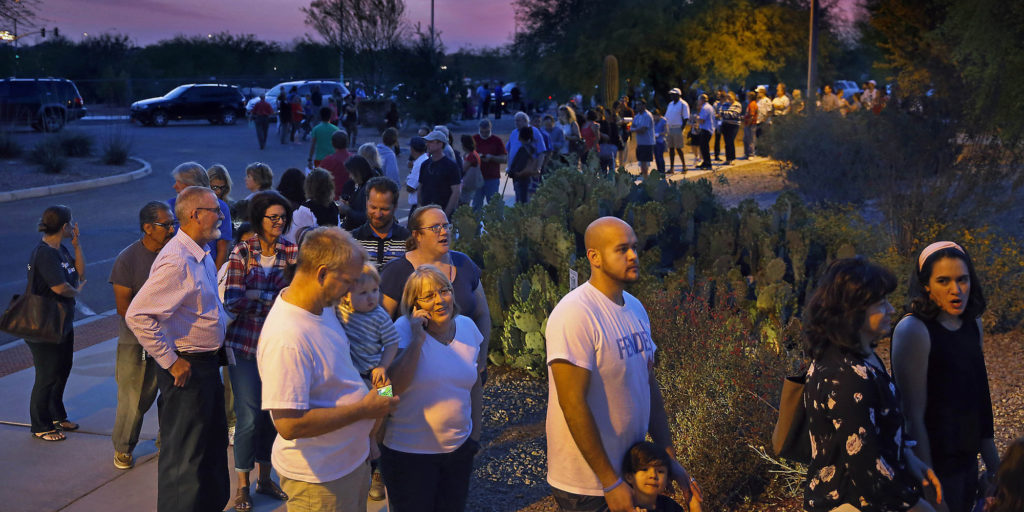
New ID requirements. Unfamiliar or distant polling places. Names missing from the voter rolls. Those are just some of the challenges that could disrupt voting across the country through Election Day. While most elections have their share of glitches, experts worry conditions are ripe this year for trouble at the nation’s polling places. This is the first presidential election year without a key enforcement provision of the federal Voting Rights Act, and 14 states have enacted new registration or voting restrictions. Adding to the uncertainty is a call by Republican presidential candidate Donald Trump for supporters to monitor the polls for voter fraud and concerns by the federal government that hackers could try to disrupt the voting process. All this has civil rights advocates on guard. “There is going to be a lot going on in this election that we are going to have to watch out for,” said Penda Hair, a civil rights lawyer who represented the North Carolina NAACP in its bid to overturn that state’s voter ID law. With no national standards for voting, rules vary widely across states and even counties. Voting experts and civil rights groups are encouraging voters to do their research before heading to the polls. That includes checking to ensure they are registered and finding their voting location, as well as understanding their rights if they face any problems. “People should not leave without casting a ballot,” said Wendy Weiser, head of the democracy program at the Brennan Center for Justice at NYU’s School of Law. “If you are an eligible voter, you should be able to have your vote counted no matter what anyone is saying.” Adding to the potential for confusion are new voter ID laws in nine states as well as reduced hours for early voting and changes to polling locations in some states. In North Carolina, at least two counties no longer offer Sunday voting. Deborah Dicks Maxwell, 60, said she is worried that — along with early voting hours largely limited to between 9 a.m. and 5 p.m. — will make it harder for people to cast ballots in her home county of New Hanover. She said Sunday voting was popular during North Carolina’s primary in March. “With the short hours we have and the high turnout that generally occurs in a presidential election year, someone is going to be in line,” said Dicks Maxwell, president of the New Hanover County branch of the NAACP. “Why penalize the citizens when you could have extended the hours and made it easier for them?” State officials have said the county didn’t offer Sunday voting in 2012 and that the current plan represents an increase in evening hours available during early voting. Long lines led to frustration during Arizona’s March primary, when some voters in the Phoenix area waited hours to cast ballots after county election officials opened 60 polling stations — fewer than half what is typical. Melissa Dunmore, a 26-year-old social worker from Phoenix, still doesn’t know if her primary ballot was counted. She waited an hour to vote, only to be told she wasn’t registered despite checking her status before heading to her polling place. She said she won’t be deterred and plans to vote early this time. “If we stop voting every time it was hard or it was denied, women wouldn’t have the right to vote, black people wouldn’t have the right to vote,” Dunmore said. Meanwhile, some 33 states have accepted an offer from the federal government to check their voter databases and reporting systems for vulnerabilities after hackers attempted to breach systems in two states over the summer. Trump’s warning that the election might be rigged along with his call for supporters to monitor polling places has alarmed some advocacy groups who say such comments threaten to undermine voter confidence in the election. “We are deeply concerned about the chilling effect this call might have on the electorate and minority voters in particular,” said Kristen Clarke, president of the Lawyers’ Committee for Civil Rights Under Law. “And we are concerned about the disruption this will cause for election workers.” Clarke and others say Trump supporters at the polls could lead to intimidation at a time when the U.S. Department of Justice has had to make substantial changes to its federal election monitoring program following the 2013 Supreme Court decision that struck down a portion of the Voting Rights Act. For the 2012 election, more than 780 federal observers and Justice Department staff were sent to 51 jurisdictions in 23 states. Now federal election observers can be sent only to those locations where there is a court order, which exists for only a small number of places in five states. With fewer federal election observers on hand, Attorney General Loretta Lynch said last week that Justice Department employees will be sent instead to at least as many states as 2012. But she did not say how many officials will go and how much access they will have. Republished with permission of the Associated Press.
Martin Dyckman: Cowards who stand aside
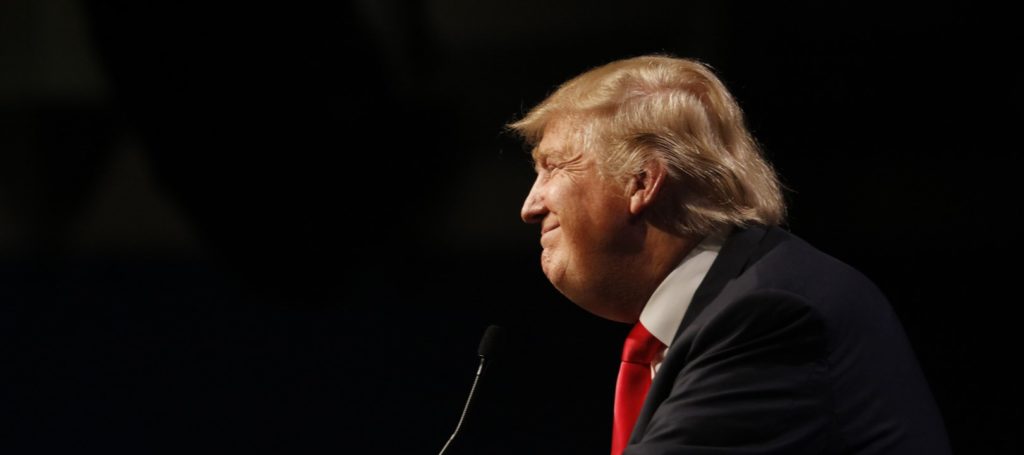
“Once to every man and nation “Comes the moment to decide “In the strife of truth with falsehood “For the Good or Evil side ….. “Then it is the brave man chooses, “While the coward stands aside” The American poet James Russell Lowell wrote those words in 1844 during the intensifying crisis over slavery. They speak to us again. Donald Trump is a uniquely evil candidate for president. It is indeed a moment to decide. Evil? I don’t wield that adjective casually. Trump’s gross sense of sexual entitlement, as he boasted in the Billy Bush tape, isn’t even the worst of it. We already knew about that aspect of his sleaziness, a misogyny bordering on perversion. But just as it appeared it couldn’t get any lower than that, it did. The cornered hyena struck back by threatening to prosecute and imprison his opponent if he wins. And that didn’t end with the debate. He’s been feeding it like raw meat to his howling mobs, reveling in their chants of “Lock her up.” There has never been anything like that in American politics. It’s what foreign tyrants like his darling Vladimir Putin do — that is, when they’re not simply killing their rivals. It’s what Fidel Castro, Adolf Hitler, Josef Stalin and Augusto Pinochet did to theirs. The list is long: Zimbabwe, Iran, North Korea, Turkey and others. “Republicans should not be okay with @realDonaldTrump threatening to jail his opponent after the election,” wrote Arizona Republican Sen. Jeff Flake. “That is not who we are.” Flake was an early and honorable critic of his party’s putrid nominee. He didn’t wait for the sewer to overflow. But far too many other Republicans still pretend for public consumption that Trump is fit to be president. They are the cowards who stand aside. That Trump is morally and mentally unfit and unworthy in every respect for the presidency is only part of the problem. The other is that he has laid bare and energized the ugly underside of American society. We host a virulent racism rooted in the original national sin of slavery. There is angry intolerance for the diversity reflected in our founding motto, e pluribus Unum — from many, one. There is hostility especially to the give-and-take political process upon which our democracy depends. Not all Trump supporters harbor these hatreds, but those who do will not fade away with his defeat. He seems, in fact, to be setting himself as up as a third force in American politics, subsuming the Tea Party in an authoritarian movement that most of us hoped could never happen here. The Republican Party bears enormous blame for this. Although conscientious Republicans were instrumental in passing the Civil Rights and Voting Rights acts of the 1960s, it was a series of their presidential candidates — Goldwater, Nixon, Reagan — who exploited Southern resentment to infect their party with racism and move it far to the right. There has been an endless parade of Republican politicians making their way into government by denouncing the very same political system at whose trough they feed. This is the paranoia upon which Trumpism feeds. Who in the GOP spoke out to denounce Trump in the four years he spent subverting President Obama‘s administration with the birther myth? I can remember only Colin Powell defending the president’s legitimacy. Other Republicans were happy to see someone with Trump’s celebrity doing their dirty work for them. Now they are shocked — shocked! — that someone so vile is their nominee. Give credit to those who refused, early and honorably, to wallow in the sewer. They include the former presidents Bush, Jeb Bush and his friend and adviser Mac Stipanovich, Sen. Lindsey Graham, and others who couldn’t stomach Trump’s demonization of Hispanics and Muslims, and also marked him — accurately—as not conservative. The good news, according to USA Today, is that more than a fourth of elected top Republicans — governors and members of Congress — are now refusing to endorse his candidacy. But the bad news is that nearly three of four of these so-called leaders still refuse to repudiate his candidacy despite his contempt for women and his threat to become a tyrant. Denouncing his gross behavior and his dirty mouth isn’t enough. He is unfit in every way for any office, let alone the highest in the land. No politicians who pretend otherwise are fit for office themselves. As has been written, Marco Rubio would rather debase himself — and his office — than risk alienating the Tea Partiers who put him into the Senate. It figures. He’s been nothing but an opportunist throughout his career, which has been defined by winning offices he hasn’t earned and puts to no good use. Rubio is hardly alone, of course, in putting his own welfare ahead of his country’s. Rubio and all other Trump apologists deserve to be defeated, every one of them. For our country’s sake, they must be. For the Republican Party’s own sake, they must be. The cowards should be pushed aside. ___ Martin Dyckman is a retired associate editor of the newspaper now known as the Tampa Bay Times. He lives in suburban Asheville, North Carolina.
Terri Sewell joins civil rights pioneer in voting rights roundtable discussion
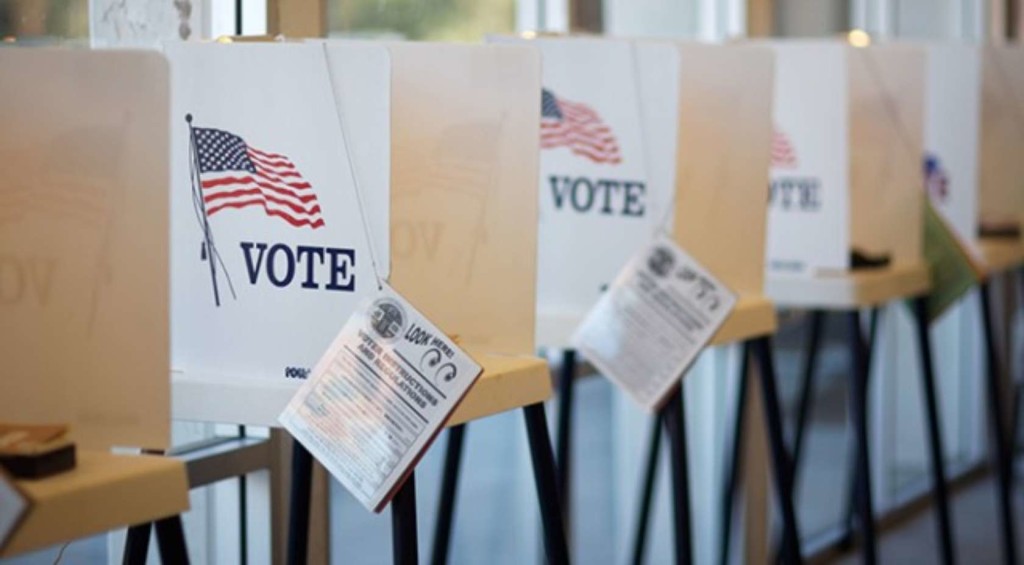
With Election Day less than 50 days away, Alabama 7th District. U.S. Rep. Terri Sewell joined her House and Senate colleagues along with civil rights experts from across the country in a roundtable discussion on voting rights in America. Set in the LBJ Room in the U.S. Capitol Building, Alabama-native and current U.S. Congressman from Georgia, John Lewis lead the open-press discussion, which underscored the importance of having a fully functioning Supreme Court to hearing voting rights cases. Lewis, who worked closely with Martin Luther King Jr.He was the first speaker during the 50th anniversary of the Selma-to-Montgomery march last year, called on the Obama Administration to install federal election observers in polling stations across the United States. “We should ask for federal protection,” Lewis said. “The election can be stolen on Election Day at polling places.” In 2013, the U.S. Supreme Court struck down key provisions of the Voting Rights Act, which required certain states to obtain permission from federal authorities before changing their voting laws. Lewis continued, “This is our time to speak up and speak out to say that we want to see fair and open elections where everyone can participate.” Also participating in the roundtable was: Rep. G.K. Butterfield, Chair of the Congressional Black Caucus Rep. Jim Clyburn Rep. Judy Chu, Chair of the Congressional Asian Pacific American Caucus Senator Dick Durbin (D-IL) Senator Ben Cardin (D-MD) Senator Amy Klobuchar (D-MN) Senator Kirsten Gillibrand (D-NY) Senator Cory Booker (D-NJ) Nancy Zirkin, Leadership Conference on Civil and Human Rights Kristen Clarke, National Lawyers Committee Terry Ao Minnis, Asian Americans Advancing Justice Andrea Senteno, Mexican American Legal Defense and Educational Fund
US to States: Make it easier for ex-prisoners to obtain IDs, vote
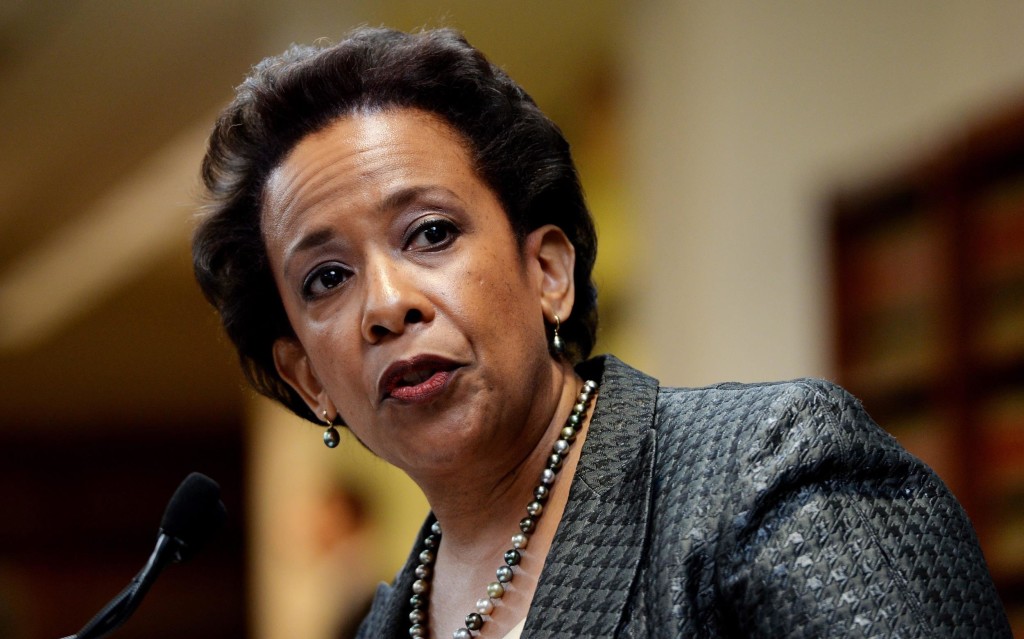
Attorney General Loretta Lynch is urging the nation’s governors to make it easier for convicted felons to obtain state-issued identification after they get out of prison, part of a broader plan being announced Monday to help smooth the path for state and federal inmates who are preparing to re-enter society. The announcement, on the first day of National Reentry Week, is aimed at helping the roughly 600,000 state and federal prisoners who return each year to American neighborhoods to better acclimate to society and remove some of the hurdles ex-convicts face in getting jobs, education and housing. “The long-term impact of a criminal record prevents many people from obtaining employment, housing, higher education and credit-and these barriers affect returning individuals even if they have turned their lives around and are unlikely to reoffend,” Lynch said in a seven-page policy titled “Roadmap to Reentry.” She planned to announce the policy change at an appearance in Philadelphia on Monday afternoon. The Justice Department initiative directs the federal Bureau of Prisons to prepare an individualized re-entry plan for each inmate that will take into account substance abuse, criminal history and education level. In addition, the agency will be reviewing its network of halfway houses and assessing its life skills, education and job training programs to ensure that they’re best serving the needs of inmates. A pilot program is also being launched at four BOP facilities for children of incarcerated parents. Lynch is separately calling on governors to allow federal inmates who are returning to their communities to exchange their prisoner identification card for state-issued identification, or to simply accept their BOP card as an identity document. Without identity documents, Americans leaving prison face challenges in getting jobs, housing or opening bank accounts, Lynch wrote in a sample letter to Alabama Gov. Robert Bentley. The topic of prisoner re-entry has attracted growing attention on the state and federal level. Last week, Virginia Gov. Terry McAuliffe issued an executive order that would allow more than 200,000 convicted felons to cast ballots in November. Republished with permission of The Associated Press.
Terri Sewell to host congressional forum on current state of U.S. voting rights
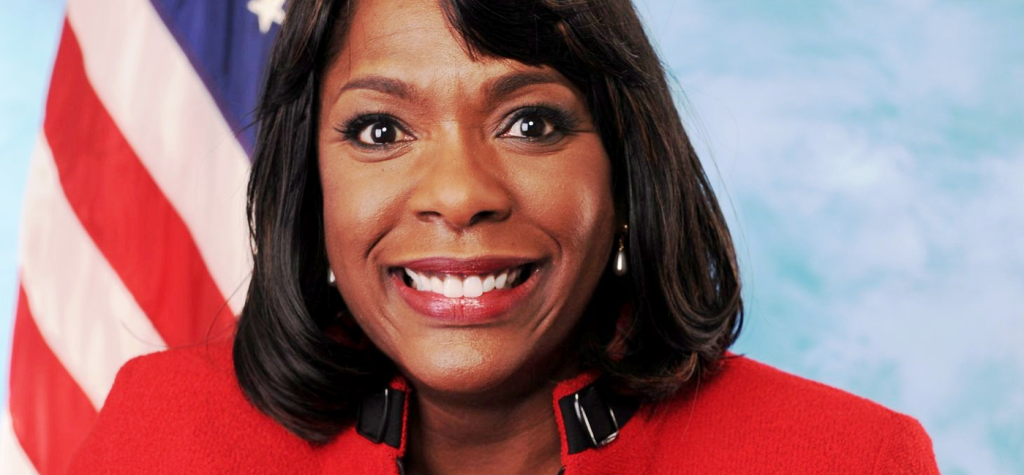
In an effort to to raise awareness about the importance of protecting voting rights and to urge Congress to support legislation to restore the Voting Rights Act of 1965, Rep. Terri Sewell (AL-07) will host “Restore the Vote: A Congressional Forum on the Current State of Voting Rights in America” on Saturday. Joined by 11 of her House colleagues — Rep. Sheila Jackson Lee (TX-18), Rep. Hank Jonson (GA-04), Rep. Stacy Plaskett (VI), Rep. Barbara Lee (CA-13), Rep. Karen Bass (CA-37), Rep. Marc Veasey (TX-33), Rep. John Lewis (GA-05), Rep. Jim Clyburn (SC-06), Rep. John Conyers (MI-13), Rep. G.K. Butterfield (NC-01) — Sewell will hear directly from voters about their concerns and modern-day challenges to voting. According to Sewell’s office, issues that will be discussed include the effects of the Shelby decision, current barriers to the ballot box and the need for Congress to act to protect the right to vote for all Americans The event will take place at the Birmingham City Council Chambers at City Hall from 1 to 3 p.m.
Alabama seeks to avoid lawsuit over federal ‘Motor Voter Act’
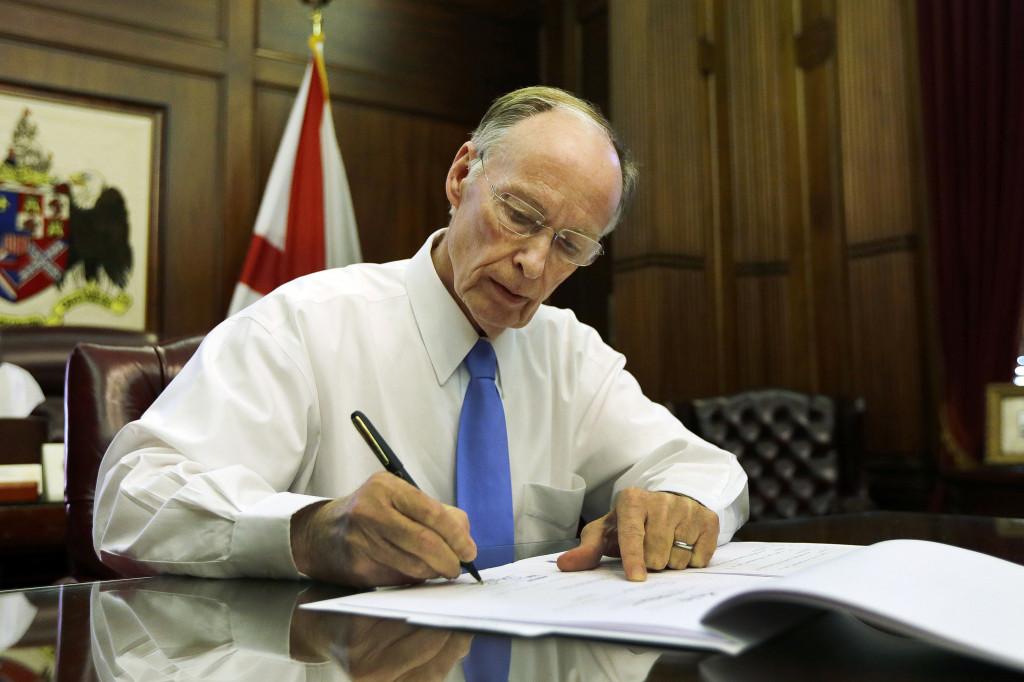
The state of Alabama has entered into an agreement with the U.S. Department of Justice to avoid a lawsuit over noncompliance with the two-decade-old Motor Voter Act. Gov. Robert Bentley signed the agreement Friday morning. The 1993 law, designed to make it easier to register to vote, requires driver license applications to be treated as a voter registration form. Bentley said the state agreed to make adjustments to the driver’s license process to make sure people are registered as required. The Department of Justice earlier this year threatened to sue Alabama for noncompliance. The governor described the noncompliance by Alabama and other states as an oversight, but he said the state intends to obey the law. Republished with permission of The Associated Press
Despite registration push, active voters slightly down so far in 2015
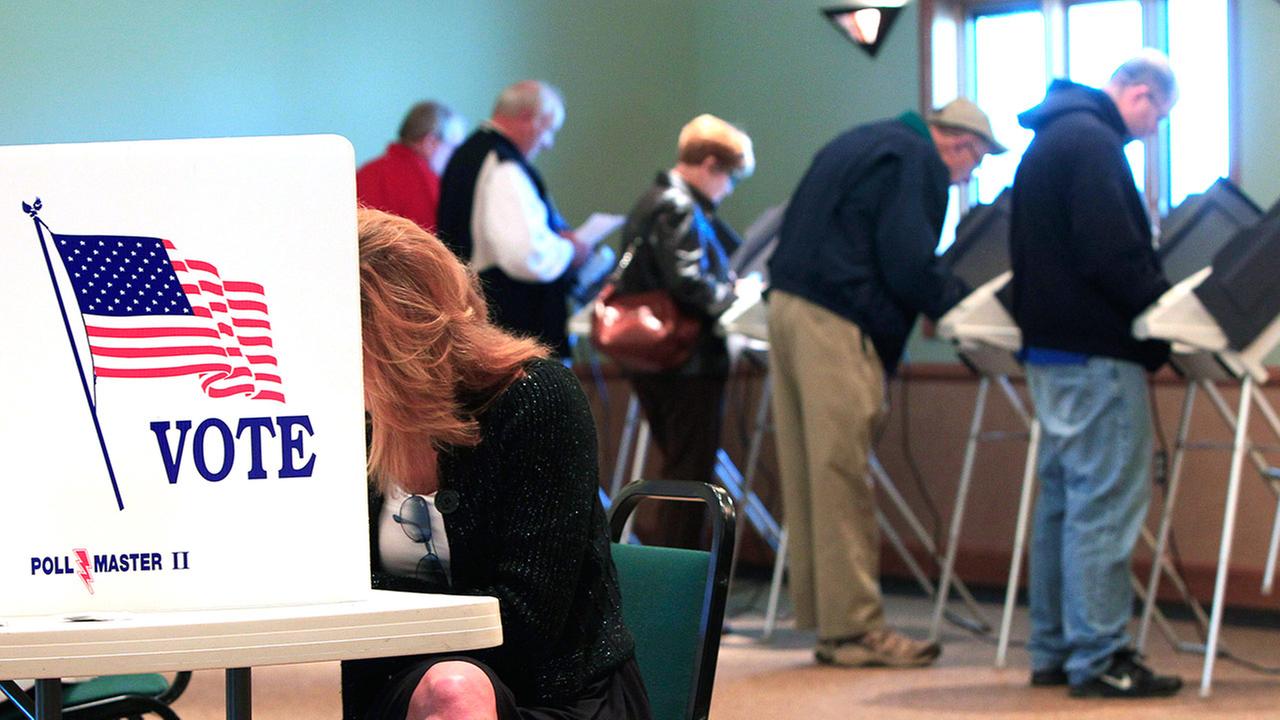
Amid a voting-rights kerfuffle which has garnered national headlines, figures from the Alabama election chief’s office show active registered voters slightly down as 2016 elections approach. Secretary of State John Merrill recently penned an op-ed piece stating unequivocally “We do not have a problem with making photo IDs available for voting in Alabama.” That claim came after Congresswoman Terri Sewell and national Civil Rights leaders raised concerns over recent closures of auxiliary DMV facilities as a result of state budget cuts, which Sewell likened to discriminatory voting practices employed by Southern states during the Jim Crow era. Merill has made a point to show his commitment to growing the voter rolls, saying last month “registering to vote empowers eligible citizens to exercise their right to vote on Election Day” and that he would “do everything within my power to ensure that each eligible Alabamian is able to exercise his or her right to vote.” Nonetheless, records from the Merrill’s Department of State show numbers of active registered voters slightly down so far in 2015. Voting registration figures reflect 2,844,871 Alabamians as actively registered currently, down some 1.3 percent from last year’s four-year high of 2,881,612. The current number of participating voters is also down compared to 2013 and 2012, when numbers remained flat at around 2.86 million registered. Terri Sewell called for a Department of Justice probe into Alabama’s voting laws last month, saying the administration of Gov. Robert Bentley and the GOP-led Legislature in Montgomery have created an environment hostile to voting rights for poor and minority citizens. “Despite a budgetary pretext, the consequence of this decision is to deny the most vulnerable in Alabama an equal opportunity to obtain a means to vote,” Sewell wrote. “These closures will potentially disenfranchise Alabama’s poor, elderly, disabled and black communities.” 2016 presidential primaries are set to be held in just 81 days, on March 1.


